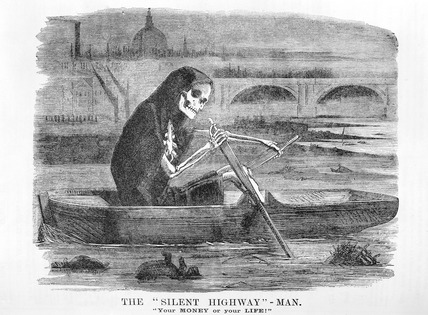Soap, eh? Who knew it was so crucial? I think I'd not really realised that it can save our lives, like, all the time. Luckily, there's a website called soaphistory.net (which my computer tries to correct to sophistry.net, which is currently an Apache test page). The archaeological record that has been listed off shows the earliest soaps in the Babylon zone, around 2800 BC. Can you imagine how excited whoever came up with soap would have been when she realised it was saving people's lives? Today, in my house, I have two soap dispensers, two spare ones, one active cake, and three spare cakes, two of which I bought in Tuscany and smell delightful. I have shower wash, washing liquid, laundry detergent, any number of cleaning liquids for bathroom, kitchen, the bizarre limescale, windows, floors, and more. I love clean laundry and washed dishes. I especially love clean sheets. That's one of my favourite house things.
Imagine what it would be like to not live with all that. Like in the hot summer of 1858, in London. In The Great Stink.
The city of London came to a standstill. Government could barely function; people resisted the urge to leave their homes, but demanded action from the government. What had brought London to its knees was the overwhelming stench that radiated from the surface of the River Thames.
Eventually, the stench simply began to overpower the staunch sensibilities of many of the Members, some who could even be ‘seen fleeing from the Chamber, handkerchief to nose, complaining loudly about the “Stygian Pool” that the Thames had become.’ - Cholera & The Thames, City of Westminster Archives
I stumbled on Mr. Punch's history of modern England, 314 pages of bits and bobs too many to mention, and full of contemporary thoughts on England of the mid-19th Century. Well worth a poke if you like that sort of thing.
Vauxhall contributes lime, Lambeth pours forth a rich amalgam from the yards of knackers and bone-grinders, Horseferry liberally gives up all its dead dogs, Westminster empties its treasures into the mighty stream by means of a common sewer of uncommon dimensions, the Fleet-ditch bears in its inky current the concentrated essences of Clerkenwell, Field-lane, Smithfield, Cowcross - and is, by means of its innumerable branches, augmented by the potent ingredients of St. Giless, Somers-town, Barbican, St. Lukes, and the surrounding districts. The fluids of the Whitechapel slaughter-houses call in their transit through the Minories for the contributions of Houndsditch, Ratcliff Highway, Bevis Marks, and Goodmans Fields, and thus richly laden pour their delicious slime into the Thames by means of the Tower-ditch. Finally, the Surrey side yields the refuse of tar-works and tan-yards, and it is allowed by all, that the people of Deptford, Woolwich, and those situated in the lower course of the stream, get the Thames water (which here sustains six different characters) in the highest perfection.
The noisome state of the Serpentine—a lake of mere manure—constantly affronted Punchs sensitive nose. Insanitary Smithfield and squalid Covent Garden elicit dishonourable mention from the early forties onward.
Phew. Although if people keep SHITTING IN PARKS, we might be in trouble. Claire put me on to lockdownloo.com, just in case you're out and about here and get stuck.
The funny part about The Great Stink was that the politicians only attended to it because the stench pervaded their lives. As their shiny new palace was being built, they were unable to perform because of it. Isn't that funny.
In cleaner, healthful thoughts, I made a nice broad bean dip thing for dinner. But it feels weird to tell you about it after all that shit talk.
